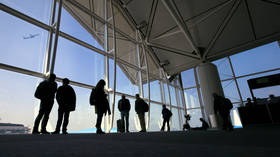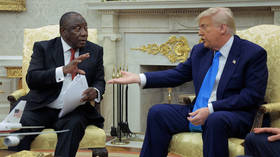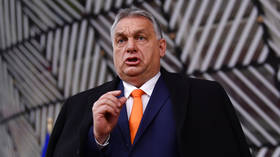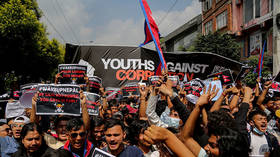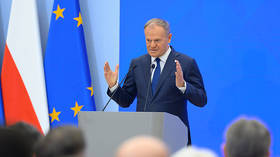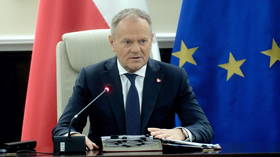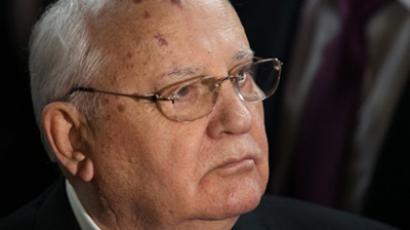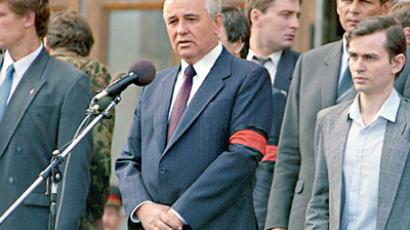Russian special forces veterans protest over Lithuania’s political repressions
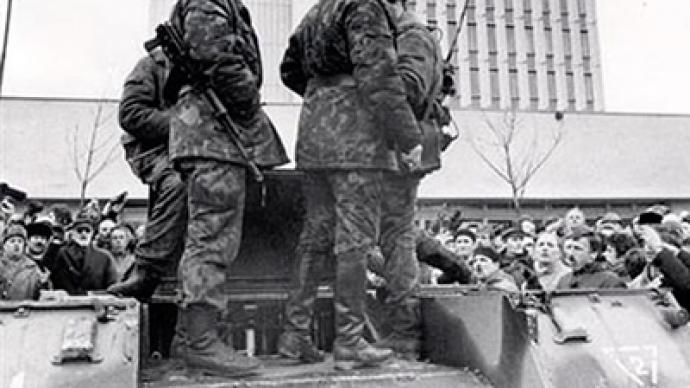
The veterans of Russia's anti-terrorist unit Alfa have addressed the Russian President with a letter complaining about the unjust criminal prosecution of a former KGB officer by Lithuanian authorities.
The Alfa unit was formed in the Soviet Union in mid-70s as a hostage rescue team, but later its purpose was broadened to include anti-terror and special operations, like the 1979 storming of Hafizulla Amin’s palace in Afghanistan. The letter of protest concerns the events in Lithuania in early 1991, when the parliament of the Lithuanian Soviet Socialist Republic announced that it was breaking away from the USSR. With Moscow opposing the decision, people took to the streets, which led the Soviet government to dispatch paratroopers and the Alfa group to restore order in Vilnius. As Soviet units stormed the Vilnius television center, 16 people were killed, including one Alfa officer. Despite the fact that several Lithuanian officials acknowledged that the casualties could have resulted from gunfire originating from the Lithuanian nationalist paramilitary organization known as Sajudis, Lithuanian authorities have continued to accuse Moscow of using excessive force in handling the stiuation. As a result, Lithuanian authorities went on to prosecute members of the special units as well as members of the Vilnius OMON police that remained loyal to the Soviet rule. The latest developments concerning the events have only recently come to the forefront, 20 years after the Vilnius riots. Lithuanian law enforcers had sent an official request to their Austrian counterparts requesting that Mikhail Golovatov, former commander of the Alfa unit who is suspected of complicity in the January 1991 events, be extradited to Lithuania. Golovatov was detained in the transit zone of the Vienna airport in mid-July, but was almost immediately released, whereby he returned to Moscow. The Lithuanian Foreign Ministry issued an official note of protest, saying they suspected that Russia was applying pressure on Austria in this case. In August 1999, a Lithuanian court sentenced six people for crimes allegedly committed by the Soviet forces. Twenty three people remain suspects in the case to this day, and 21 of them are Russians. The Russian Foreign Ministry has expressed its surprise over the note, saying that in normal diplomatic practice, the details of the meetings between diplomats are not made public.In the end of July, the international association of Alfa veterans addressed Russian President Dmitry Medvedev with a letter in which they said that Lithuanian authorities could take further action against former Alfa officers. In the letter, the veterans stressed that all the charges against Golovatov were not backed by any evidence. They also wrote that in 1991, Alfa troops were not using live ammunition and did not harm a single citizen of the Lithuanian Soviet Socialist Republic. The veterans wrote that certain Lithuanian politicians were trying to solve their own internal problems at the expense of the veterans of the Soviet Special Forces, and that there were some facts that suggested that the Lithuanians could launch more proceedings against former Alfa officers. In the letter, the veterans also accused the authorities of Latvia and Estonia of taking a similar stance. “Everyone is aware of the numerous facts testifying to the Lithuanian side’s attempts to rewrite the history of both the Great Patriotic War and the USSR era in order to paint Russia as an occupant. We ask you to give your estimation of such charges against Russian citizens that touch upon Russia’s interests, and also the honor and dignity of Alfa veterans,” the letter reads.A short time after the letter was published, the Russian president’s press-secretary Natalia Timakova told the Interfax news agency that Dmitry Medvedev had received and studied the address. “The President’s position is that Russia has always protected and will continue to protect its citizens,” the official said. Timakova also stressed that the inadequate position of the Lithuanian authorities, who have tried to lay the blame for the actions of an already non-existent state on Russian citizens, is a cause for bewilderment.




